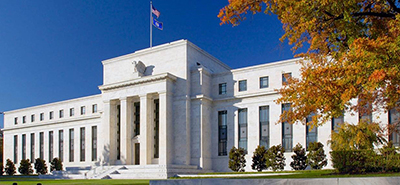
Federal Reserve Raises Interest Rates 50 Basis Points

The Federal Reserve raised its target range for the federal funds rate by 50 basis points–the largest increase since 2000–on Wednesday.
The Fed now targets a span between 0.75% and 1.00%.
Mortgage Bankers Association Senior Vice President and Chief Economist Mike Fratantoni noted there are two items to watch from the Federal Open Market Committee following this month’s two-day meeting. “First, they announced a 50-basis-point increase in the federal funds target,” he said. “This change had been telegraphed clearly in recent speeches. The statement also repeated the language that the committee ‘anticipates that ongoing increases in the target range will be appropriate.’ In other words, we are far from done at this point.”
Fratantoni said the second, and perhaps most important news, was regarding the Fed’s $9 trillion balance sheet. “As clearly signaled in the March minutes, the FOMC will move to allow $60 billion in Treasuries and $35 billion in MBS to passively roll off the balance sheet each month, gradually reducing these asset holdings from extraordinary levels,” he said. “The runoff will ramp up over the course of three months, which should allow markets to absorb this excess supply. Importantly, neither the statement nor the balance sheet plan repeated the goal of returning the balance sheet to all Treasuries, and there was no mention about the potential for active MBS sales. Musing about active sales has likely increased volatility in the MBS market recently, as investors do not know how to interpret the vague signals that had been given.
MBA now forecasts the fed funds target will reach 2.5%, the neutral rate, by the end of 2022.
“MBA is forecasting that mortgage rates are likely to plateau near current levels,” Fratantoni said. “The financial markets have attempted to price in the impact of Fed actions over this cycle, and they are likely also pricing in the economic slowdown that will result. Once we are past this rate spike and associated volatility, MBA expects that potential homebuyers may be more willing to re-enter the market. Given how much higher rates will remain above the past two years, we do not expect refinance demand to increase any time soon.”
